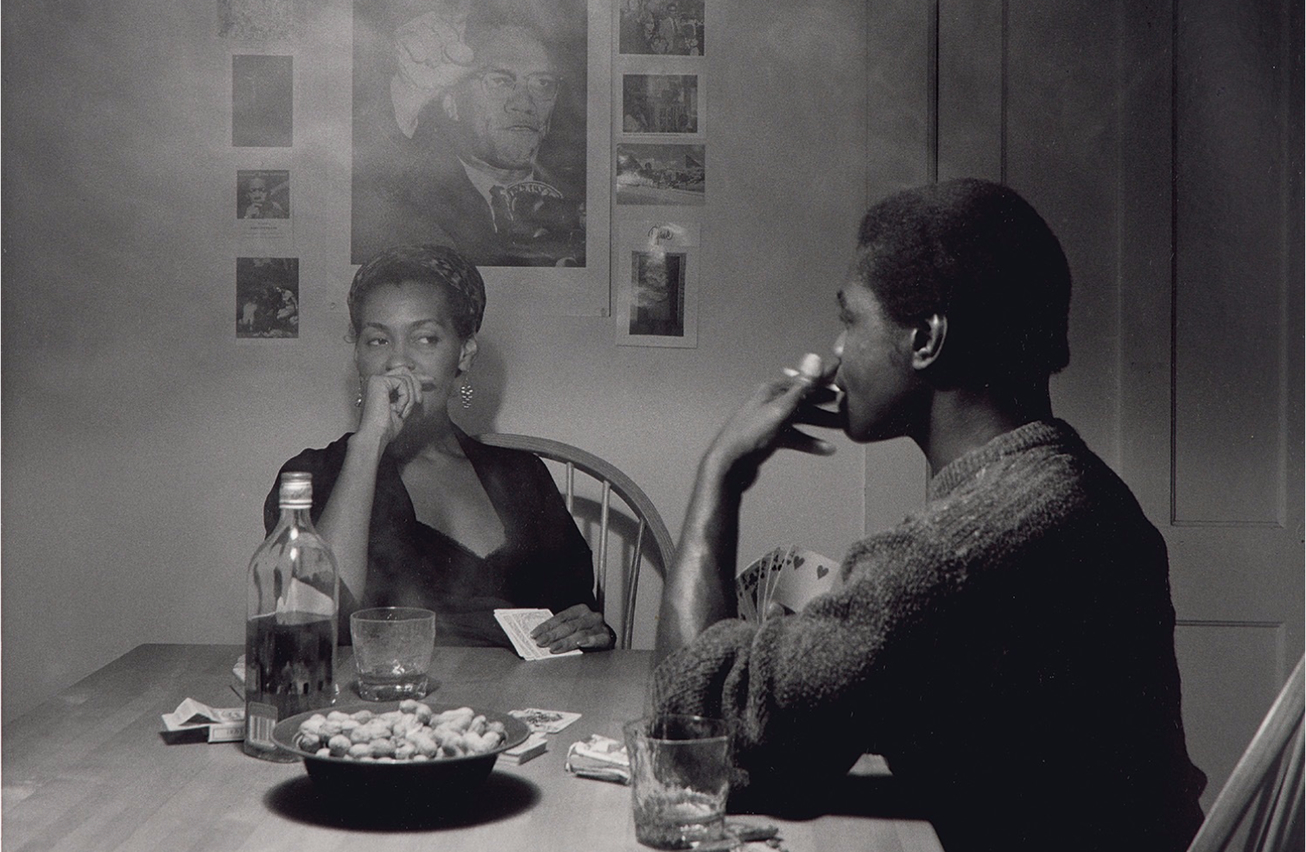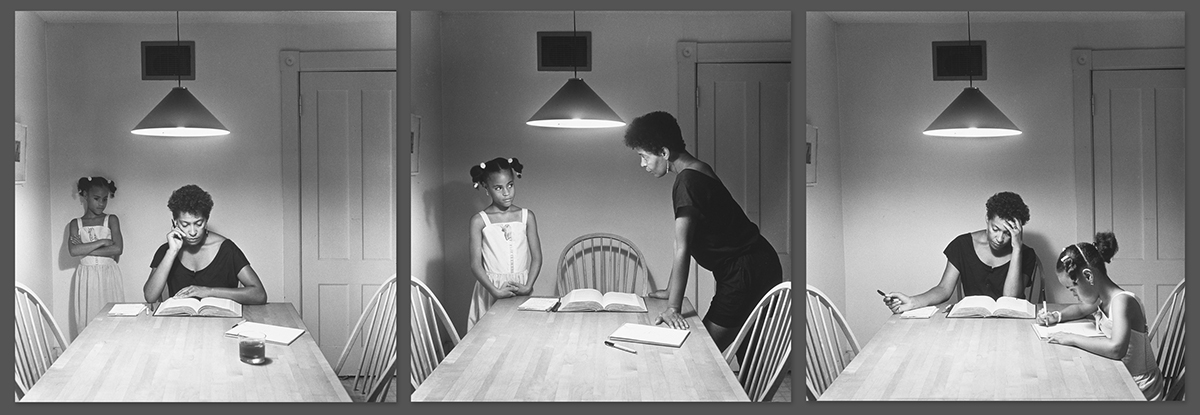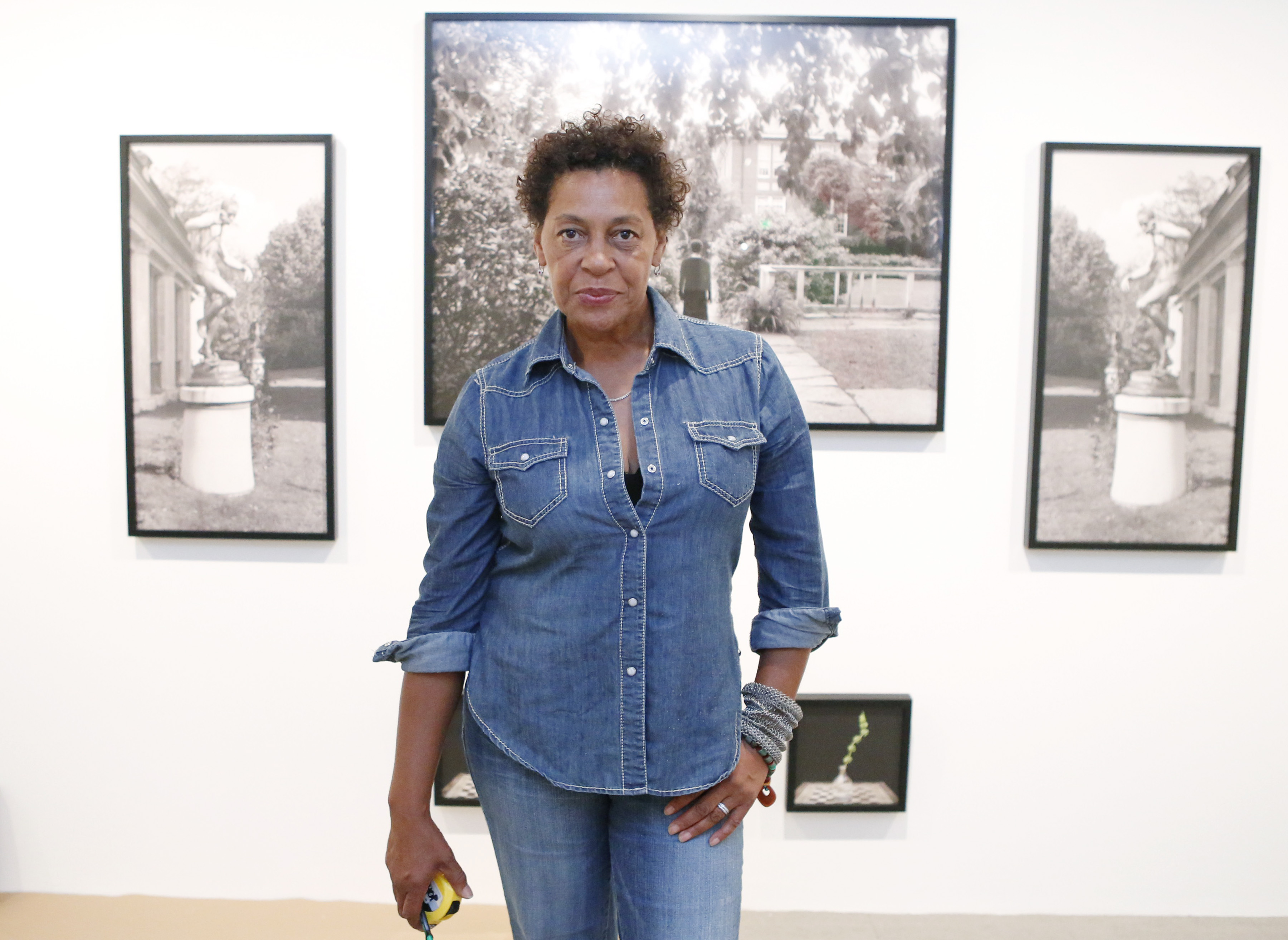Carrie Mae Weems is a groundbreaking artist whose work has challenged societal norms and given voice to marginalized communities. Her Kitchen Table Series is a prime example of her powerful and thought-provoking art. The series, which was first exhibited in 1990, features staged photographs of Weems and other women at a kitchen table, exploring themes of family, relationships, and identity.Carrie Mae Weems: The Visionary Behind the Kitchen Table Series
The kitchen table holds a special place in many cultures, often serving as the heart of the home. It is where meals are shared, conversations are had, and memories are made. For Weems, the kitchen table represents not only the physical space, but also the emotional and psychological space where women gather to discuss their experiences and shape their identities.The Significance of the Kitchen Table
In 2014, one of the photographs from the Kitchen Table Series was sold at auction for a record-breaking $312,500. The photograph, titled "Untitled (Woman and Daughter with Makeup)," captures a quiet and intimate moment between a mother and daughter. It speaks to the complexities of motherhood and the passing down of societal expectations of beauty. This auction not only solidified Weems' place in the art world, but also brought attention to the important themes she addresses in her work.The Auction of a Lifetime
Weems' use of photography in the Kitchen Table Series allows her to capture powerful and emotional moments in a single frame. However, she also incorporates text into her work, giving the photographs a narrative quality. This combination of visual and written storytelling allows for a deeper and more nuanced exploration of the themes presented in the series.Blending Photography and Storytelling
As a black woman, Weems' work is deeply rooted in black feminism and the representation of black women in art. The Kitchen Table Series challenges the traditional portrayal of black women in art as either hypersexualized or invisible. Weems' photographs give agency and visibility to black women, showcasing their experiences and perspectives.Black Feminism and Representation
Although the Kitchen Table Series was first exhibited in 1990, its themes are still relevant and resonant today. Weems' exploration of identity, race, and gender continues to spark important conversations and shed light on the experiences of marginalized communities. The series remains a powerful and impactful commentary on society and its expectations.Contemporary Relevance
Through her Kitchen Table Series, Carrie Mae Weems has not only broken boundaries in the art world, but also challenged societal norms and given voice to underrepresented communities. Her use of photography and storytelling has created a body of work that is both visually stunning and socially relevant. Weems' art serves as a reminder of the power of representation and the importance of diverse perspectives in the art world.Breaking Boundaries with Art
The Kitchen Table Series delves into complex and multifaceted topics surrounding identity, race, and gender. Weems' photographs capture the nuances and contradictions of these themes, inviting viewers to contemplate their own identities and societal expectations. The series serves as a powerful commentary on the intersections of race and gender, and how they shape one's sense of self.Identity, Race, and Gender in the Kitchen Table Series
Carrie Mae Weems' Kitchen Table Series has left a lasting impact on the art world and beyond. Its exploration of identity, race, and gender has sparked important conversations and challenged traditional notions of representation. The series continues to inspire and provoke thought, solidifying Weems' place as a visionary in contemporary art.The Legacy of the Kitchen Table Series
The Kitchen Table Series is a testament to the power of art to create change and give voice to underrepresented communities. Through her work, Carrie Mae Weems has challenged societal norms, sparked important conversations, and opened doors for future artists. The series serves as a reminder of the transformative and revolutionary potential of art.The Power of Art to Create Change
The Significance of Carrie Mae Weems' Kitchen Table Auction in House Design

The Intersection of Art and Design
 In the world of house design, functionality and aesthetics often take center stage. However, the
kitchen table
is more than just a piece of furniture. It is a space where families gather, conversations flow, and memories are made. This is the focal point of Carrie Mae Weems' renowned
Kitchen Table Series
, which captures the intimate moments and complex dynamics of Black family life through photography and storytelling. And now, with the upcoming
Kitchen Table Auction
, this series is making its mark on the world of house design.
In the world of house design, functionality and aesthetics often take center stage. However, the
kitchen table
is more than just a piece of furniture. It is a space where families gather, conversations flow, and memories are made. This is the focal point of Carrie Mae Weems' renowned
Kitchen Table Series
, which captures the intimate moments and complex dynamics of Black family life through photography and storytelling. And now, with the upcoming
Kitchen Table Auction
, this series is making its mark on the world of house design.
Bringing Art into the Home
 The
Kitchen Table Auction
offers a unique opportunity for homeowners and designers alike to incorporate a piece of art into their living spaces. Weems' photographs not only showcase the beauty and diversity of Black families, but they also challenge traditional notions of home and family. By displaying these pieces in our homes, we are not only adding a touch of sophistication and culture, but also opening up important conversations about representation and inclusivity in house design.
The
Kitchen Table Auction
offers a unique opportunity for homeowners and designers alike to incorporate a piece of art into their living spaces. Weems' photographs not only showcase the beauty and diversity of Black families, but they also challenge traditional notions of home and family. By displaying these pieces in our homes, we are not only adding a touch of sophistication and culture, but also opening up important conversations about representation and inclusivity in house design.
Creating a Sense of Community
 In addition to the artistic and design elements, the
Kitchen Table Auction
also serves a greater purpose. A portion of the proceeds from the auction will go towards supporting
arts education programs
for children in underserved communities. This not only highlights the importance of giving back, but also brings together a community of art and design enthusiasts who share a passion for social impact.
In addition to the artistic and design elements, the
Kitchen Table Auction
also serves a greater purpose. A portion of the proceeds from the auction will go towards supporting
arts education programs
for children in underserved communities. This not only highlights the importance of giving back, but also brings together a community of art and design enthusiasts who share a passion for social impact.
The Legacy of Carrie Mae Weems
 Carrie Mae Weems'
Kitchen Table Series
has been widely acclaimed for its powerful and thought-provoking commentary on race, gender, and identity. By incorporating these pieces into our homes, we are not only adding beauty and depth to our living spaces, but also honoring the legacy of a renowned artist. The
Kitchen Table Auction
is a chance to own a piece of history and be a part of the ongoing conversation around art, design, and social issues.
Carrie Mae Weems'
Kitchen Table Series
has been widely acclaimed for its powerful and thought-provoking commentary on race, gender, and identity. By incorporating these pieces into our homes, we are not only adding beauty and depth to our living spaces, but also honoring the legacy of a renowned artist. The
Kitchen Table Auction
is a chance to own a piece of history and be a part of the ongoing conversation around art, design, and social issues.
Transforming House Design
 The
Kitchen Table Auction
is not just an opportunity to purchase a piece of art, but it is also a chance to transform house design. By incorporating these powerful and meaningful pieces into our homes, we are pushing the boundaries of traditional design and creating spaces that reflect our values and beliefs. The
Kitchen Table Series
challenges us to think beyond functionality and embrace the beauty and complexity of everyday life.
In conclusion, the
Kitchen Table Auction
is not just about acquiring a beautiful piece of art, but it is about bringing together art, design, community, and social impact. It is a testament to the power of creativity and the potential for art to transform and inspire. So, whether you are a homeowner, designer, or simply an art enthusiast, the
Kitchen Table Auction
is an event not to be missed.
The
Kitchen Table Auction
is not just an opportunity to purchase a piece of art, but it is also a chance to transform house design. By incorporating these powerful and meaningful pieces into our homes, we are pushing the boundaries of traditional design and creating spaces that reflect our values and beliefs. The
Kitchen Table Series
challenges us to think beyond functionality and embrace the beauty and complexity of everyday life.
In conclusion, the
Kitchen Table Auction
is not just about acquiring a beautiful piece of art, but it is about bringing together art, design, community, and social impact. It is a testament to the power of creativity and the potential for art to transform and inspire. So, whether you are a homeowner, designer, or simply an art enthusiast, the
Kitchen Table Auction
is an event not to be missed.





















.jpg)














































































_opening_lap.jpg)

















